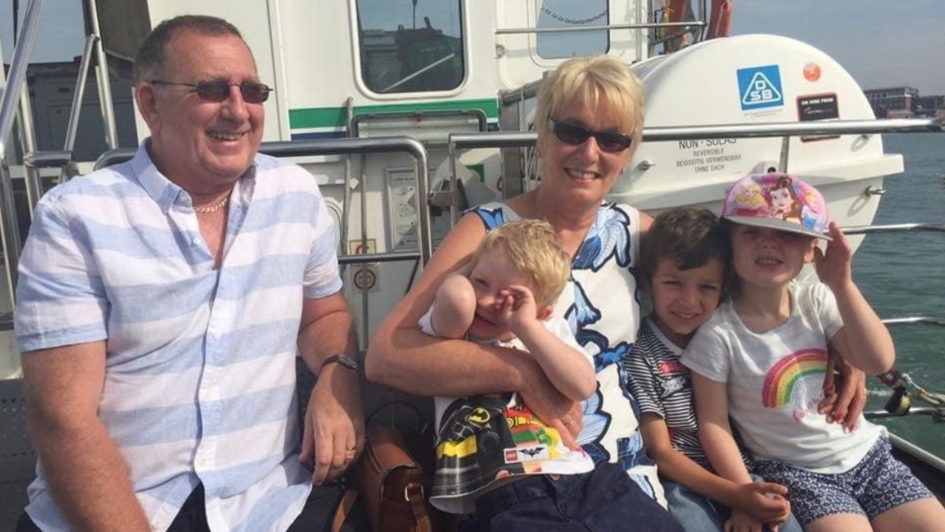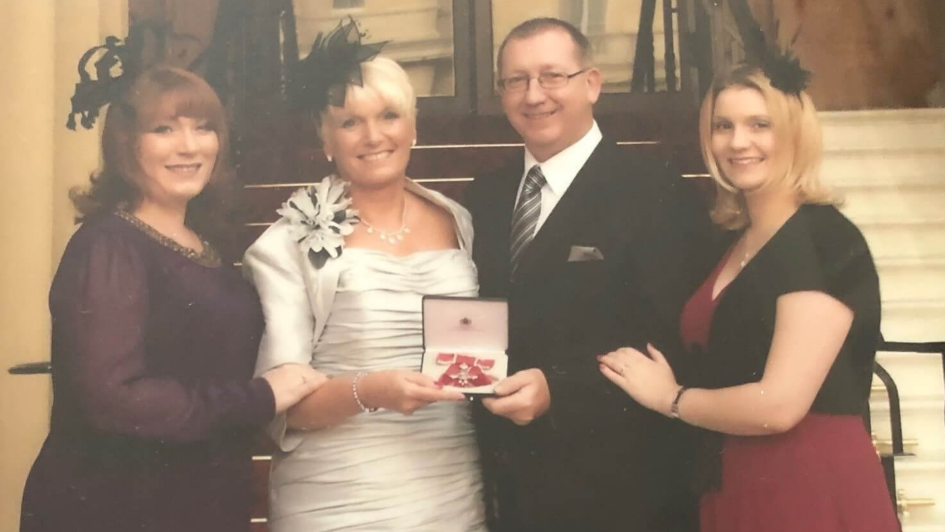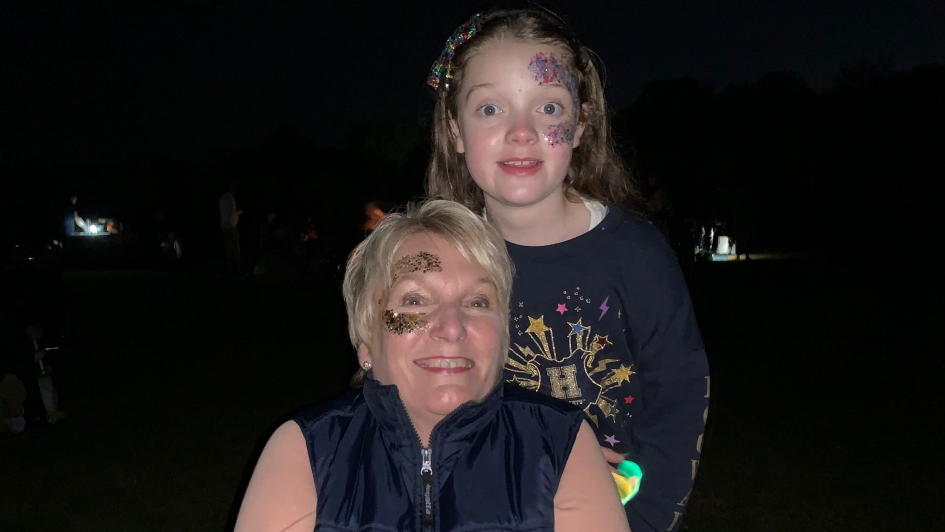
Image: Sue Vincent spending time with her husband Pete and grandchildren. Credit: Sue Vincent
In 2007 I was diagnosed with advanced ovarian cancer. I’d become ill very quickly – a month before I’d been on holiday in Greece feeling very well. At the time I was 54, had just started a new relationship, was in a full-time job as a local government officer and went to the gym two or three times a week.
Initial tests had put symptoms down to lots of things, but nothing very serious. On 18 September, though, the consultant gynaecologist turned to me and said, "You have an ovarian tumour".
I didn’t understand straight away that he was talking about cancer. What followed very quickly was an emergency operation the next week. I was given a less than 20 per cent chance of living five years. Six months of debilitating chemo followed. I lost my hair, I lost my dignity, my personality - and I lost me.
My diagnosis left me devastated
My whole life was devastated. I had two daughters who were worried they were about to lose their mum and there were days when getting up from bed and making it to the sofa felt like a full-time job.
My own mum had been diagnosed with breast cancer in 1968 when I was 16. At the time she was told it wasn’t hereditary. But after my own diagnosis I went for genetic testing and was found to have a mutation in my BRCA2 gene.
In 2010 I had a double mastectomy as a precaution because of the gene mutation and the following month my consultant said a blood protein marker was raised – but not to worry, as it was probably a blip because I’d had the operation.
A few months later - three years after my first diagnosis - I was told the cancer had returned. This time it was in three places and inoperable.
Olaparib gave me my life back
My consultant talked to me about the opportunity to go on a clinical trial for a pioneering drug called olaparib, the discovery and development of which was underpinned by research at The Institute of Cancer Research.
My view was that as my prognosis wasn’t particularly good, anything that could enable me to have longer had to be a good thing. I also felt that if I was going to die then I wanted to the medical profession to be able to learn from me because of my BRCA mutation. I had two daughters and I didn’t want them to go through what I was going through.
So for the past 12 years I have been taking olaparib and it has given me my life back. It has enabled me to see five beautiful grandchildren being born and to take an active part in their life. It has enabled me to go back to work and build a significant business for myself. I’ve even been awarded an MBE for my work in local government, supporting people with disabilities.

Image: Sue is awarded an MBE for her local government work. Credit: Sue Vincent
I've never stopped feeling grateful
Olaparib has enabled me to go back to the gym - I’m back doing all the things I did pre-diagnosis. It’s given me a quality of life I could only have dreamed about. My prognosis was so dire that really and truthfully any life was going to be good. I have been in remission since 2010 and this life is very, very good.
Thanks to the funding and the sheer excellence of scientists and researchers, I’m here to tell the tale and I've never stopped feeling grateful.
I was in the right place at the right time and extremely lucky to be offered that trial. I have had an amazing 12 years so far as a result of that. The sheer dedication of everyone who works in cancer research is amazing.
Supporting the next generation of researchers
Funding is an issue and people will say, "I give to cancer research", without any real understanding of the difference it makes to people like me. Thank you from the bottom of heart, because you’ve given me my life back and you’ve given my daughters their mum, you’ve given my grandchildren their Nan. I was in my mid 50s when I was diagnosed and I still have a lot of living left to do.
Now we need to focus on the next generation of researchers. There are thousands and thousands of people out there like me, who are relying on scientists to develop the drugs of the future that will save their lives.

Image: Sue spending time with her granddaughter. Credit: Sue Vincent
How you can help
As well as being a world-leading cancer research institute, we are a charity and rely on the help of people like you to continue our work.
We are making exciting advances against cancer, but we urgently need a new generation of treatments to help more patients like Sue.
To discover smarter treatments, we need the very brightest cancer scientists and clinicians.
With your support we can train a new generation of PhD scientists who will work in our labs while studying to become tomorrow's research leaders.
Please make a donation today and help us find tomorrow’s cancer treatments.